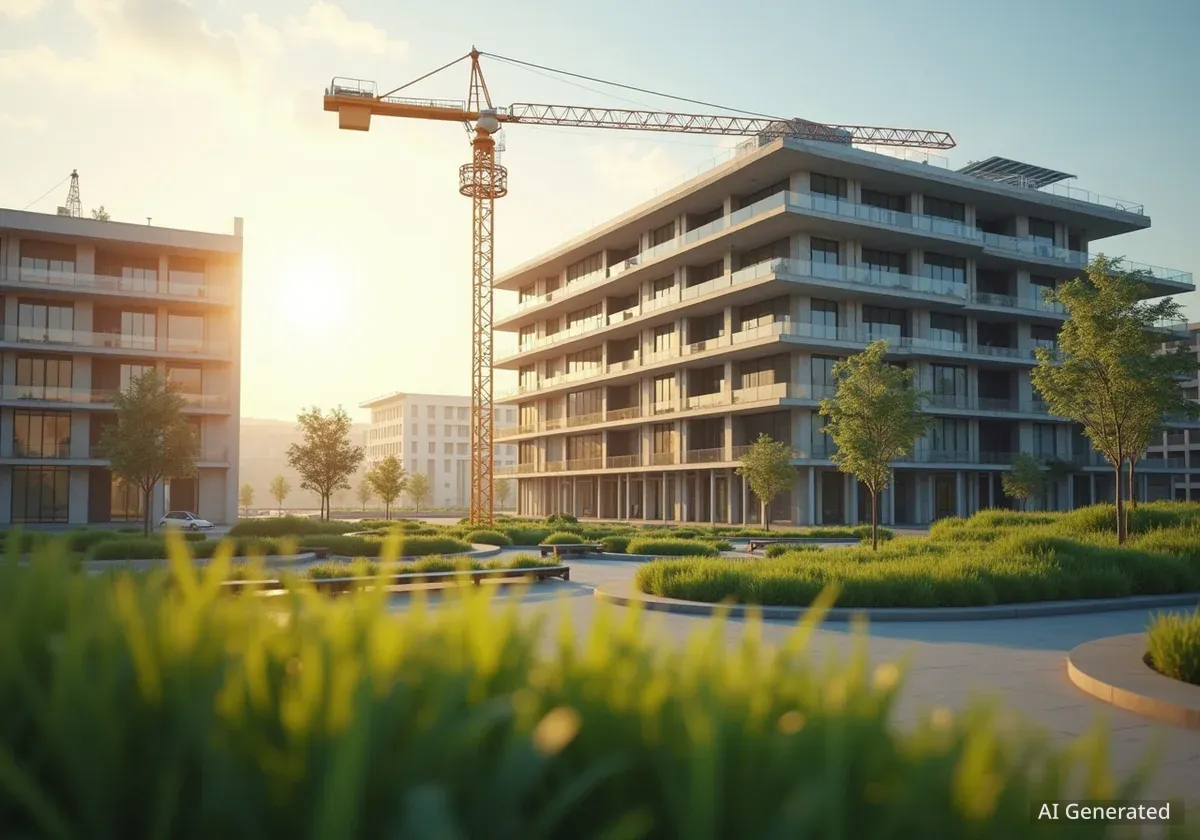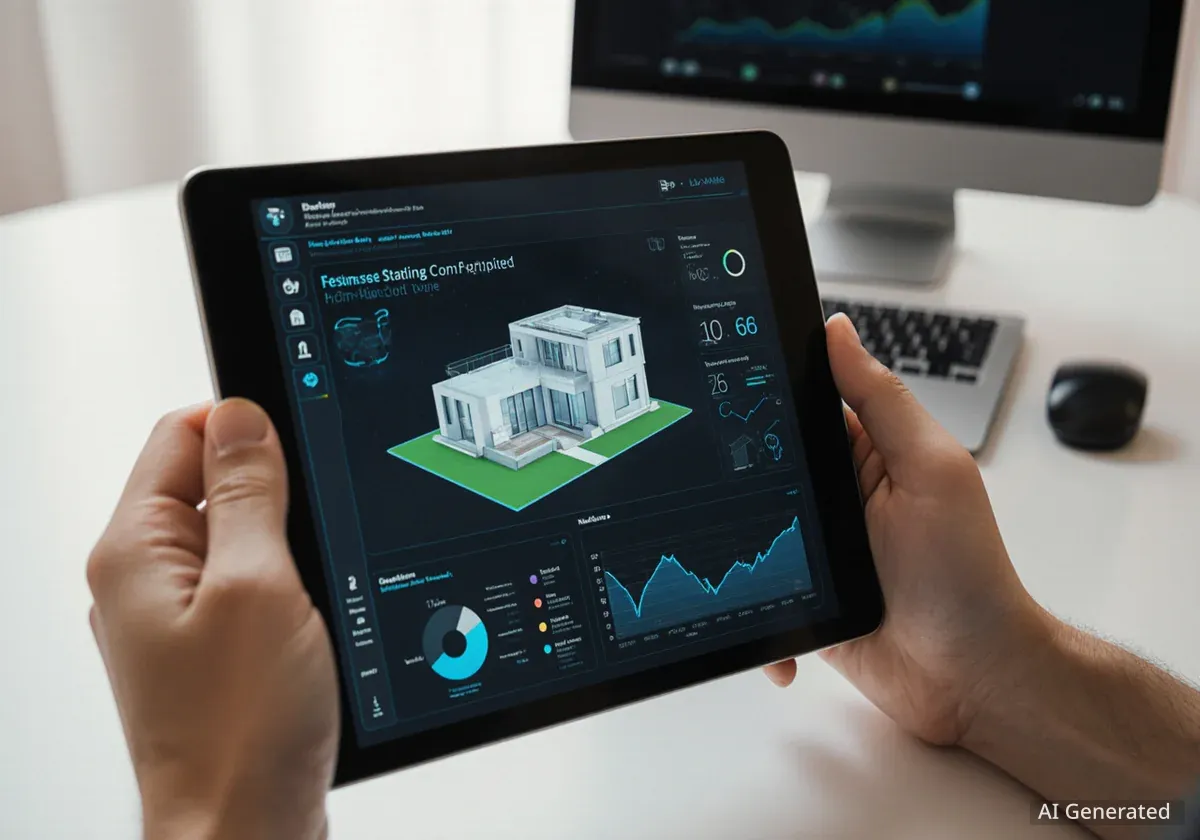Azeo Real Estate, a prominent player in the commercial property sector, has announced a significant strategic shift, redirecting its focus towards the development of sustainable, technology-driven mixed-use urban hubs. The company is committing an initial $2.5 billion over the next five years to pioneer this new approach, which integrates residential, commercial, and green spaces into cohesive community projects.
The move signals a major departure from the company's traditional portfolio, which has historically centered on single-use office and retail properties. This new direction aims to address evolving post-pandemic lifestyle demands and growing investor pressure for environmentally and socially responsible assets.
Key Takeaways
- Azeo Real Estate is launching a new strategy focused on integrated, sustainable urban developments.
- The company has allocated an initial investment of $2.5 billion for the first five years of the plan.
- The strategy prioritizes Environmental, Social, and Governance (ESG) criteria and advanced property technology (PropTech).
- The first flagship project, "The Meridian," is planned for a major metropolitan area, with construction starting in 2025.
A New Blueprint for Urban Development
Azeo's new strategy, detailed in a company-wide announcement, marks a fundamental change in its operational philosophy. The firm plans to move away from developing isolated office towers and retail centers and instead focus on creating holistic "urban hubs."
These hubs are designed to be self-contained communities where residents can live, work, and socialize within a walkable, environmentally conscious setting. The core concept is to blend residential apartments, flexible office spaces, local retail, and public green areas into a single, synergistic master plan.
What Are Mixed-Use Developments?
Mixed-use development is an urban planning strategy that combines residential, commercial, cultural, institutional, or entertainment uses into one space. This approach promotes walkability, reduces reliance on cars, and aims to create more vibrant, efficient, and community-oriented neighborhoods.
According to internal documents, the goal is to create developments that are not just buildings, but thriving ecosystems. This reflects a broader trend in real estate where value is increasingly tied to user experience and community integration rather than just square footage.
The Role of Technology and Sustainability
A central pillar of Azeo's revised positioning is its deep commitment to sustainability and technology. Each new project will be built to meet top-tier green building certifications, such as LEED Platinum or BREEAM Outstanding.
The company plans to incorporate several key environmental features:
- On-site renewable energy generation, including solar panels and geothermal systems.
- Advanced water recycling and rainwater harvesting systems.
- Extensive green roofs and vertical gardens to improve air quality and reduce the urban heat island effect.
- Prioritization of sustainable and locally sourced building materials.
Azeo aims for its new developments to be 40% more energy-efficient than current industry standards for new constructions. The company projects this will result in a 60% reduction in operational carbon emissions across its new portfolio by 2035.
On the technology front, Azeo is heavily investing in PropTech to enhance building management and resident experience. This includes smart building systems that optimize energy use in real-time, an integrated app for residents to manage everything from booking amenities to paying rent, and data analytics to continuously improve operational efficiency.
Market Response and Industry Implications
The announcement has generated significant discussion within the commercial real estate industry. Many analysts see the move as a forward-thinking response to profound shifts in how people use physical space. The rise of remote and hybrid work has softened demand for traditional office buildings, while consumers increasingly seek convenience and community in their living arrangements.
This strategic pivot could position Azeo as a leader in a growing niche of the market. Investors are increasingly allocating capital based on ESG metrics, and sustainable properties often command higher rents and retain value better over the long term.
"This isn't just about building greener buildings; it's about rethinking the very fabric of urban life," an industry analyst commented. "Azeo is placing a bold bet that the future of real estate lies in integrated, sustainable communities, not isolated structures. If they succeed, it could set a new standard for the entire sector."
However, the strategy is not without risks. Large-scale, mixed-use developments are complex, capital-intensive, and require long-term planning horizons. They are also highly sensitive to economic cycles and shifts in municipal regulations. Securing zoning permits for such ambitious projects can be a significant hurdle.
Looking Ahead: The First Flagship Project
Azeo has confirmed that the first project under this new strategy, codenamed "The Meridian," is already in the advanced planning stages. While the exact location has not been disclosed, it is expected to be in a major metropolitan area facing housing shortages and urban sprawl challenges.
Construction is slated to begin in early 2025, with the first phase projected for completion by 2028. The project will serve as a proof-of-concept for Azeo's new model, and its success or failure will be closely watched by competitors and investors alike.
As Azeo Real Estate embarks on this ambitious transformation, its journey will offer valuable insights into the future of real estate and urban living in a rapidly changing world.





